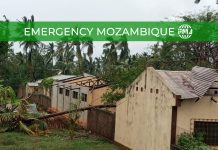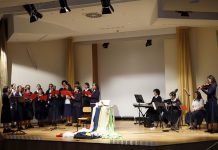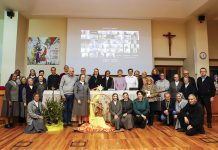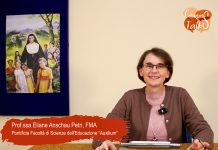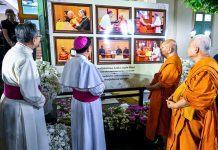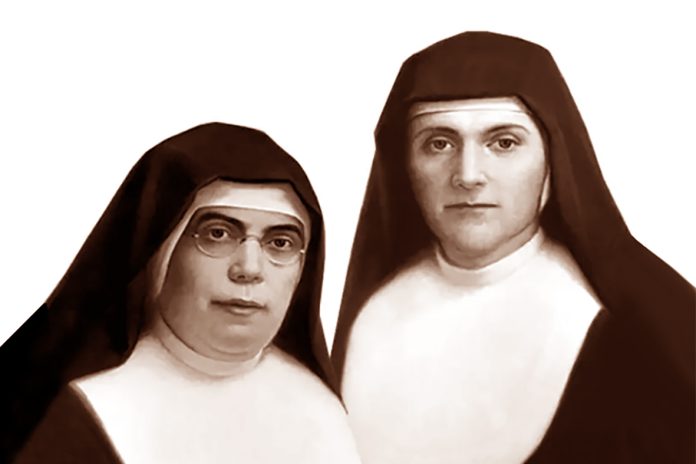Rome (Italy). The 20th century was marked by the blood of martyrs. In preparation for the Jubilee of 2000, Saint John Paul II established the Commission on New Martyrs which gathers more than twelve thousand dossiers. 119 of them are part of the Salesian Family.
On 22 September, in the liturgical calendar of the Salesian Family, the memory of Blessed Giuseppe Calasanz Marqués and Enrico Sáiz Aparicio, priests and fellow martyrs is indicated. It is a group of 95 members of the Salesian Family – 39 priests, 22 clerics, 24 coadjutors, 2 Daughters of Mary Help of Christians, 4 Salesian Cooperators, 3 aspirants, and one lay collaborator – who had the courage to be faithful to their Christian faith and to the Salesian vocation, expressing trust in God and forgiveness towards their murderers.
They died between July 1936 and April 1938, in Spain during the civil war, and along with 138 other martyrs from other religious families were beatified by John Paul II on 11 March 2001.
Among them were Sister María Carmen Moreno Benítez (1885 – 1936) e Sister María Amparo Carbonell Muñoz (1893 – 1936),
Daughters of Mary Help of Christians who in July 1936, were together in the same house – Saint Dorotea College in Barcelona (Sarrià); the first was the Vicar and the second was a factotum.
Sister Carmen, who had been Animator at Valverde for nine years and had known and assisted in the hour of death of Blessed Sister Eusebia Palomino, had arrived in Barcelona towards the end of June. Sister Amparo was of humble origin and had experienced many difficulties in her life. Her lack of education and the opposition of family members had delayed her entry into the Institute. Immediately after her first profession, an illness had weakened her physical strength. In 1931, she had to return to her family for unknown reasons. Returning to the community of Barcelona, Sarrià with her usual tireless dedication, she gave herself to the many needs of the house, seat of the Province in which the traveling Sisters were given hospitality.
After the elections of February 1936, won by a coalition of communists, socialists, and republicans, the political situation in Spain became more complicated. Violent demonstrations against priests and religious were multiplying, as well as the desecration of churches and chapels. On 17 July 1936, the internal conflicts turned into a civil war. On the same day in the house of Barcelona Sarrià, the spiritual exercises began with about seventy Sisters participating. There were also twelve novices and about thirty girls in the same building.
In a short time, the evacuation was organized. Sisters and novices were given lay clothes, and they and the girls looked for ways to reach their families. On 24 July, the Italian Sisters embarked on a ship bound for Italy. Only three remained: Sister Xammar, who had just been operated on for cancer and was not in a condition to travel; Sister Carmen and Sister Amparo who offered to assist her.
On the night of 1 September, all three were arrested. After the interrogation, the sick Sister was released, while Sister Carmen and Sister Amparo were murdered at dawn on 6 September 1936, in the Barcelona Hippodrome, not far from Santa Dorotea house.
Their death, recognized as “martyrdom”, is indeed a witness of fraternal charity, of humble and courageous patience in facing the most painful trials, but also of fidelity to the Gospel and religious profession. At the Hippodrome that morning, they had no name, but only a number: 4676 Sister Carmen and 4677 Sister Amparo. Perhaps it was to erase their memory. This did not happen.
In announcing their beatification in Circular No. 829 of 11 February 2001, the then Superior General, Mother Antonia Colombo, wrote:
“Sister Amparo and Sister Carmen are the first two FMA recognized as martyrs by the Church, but they are not the only ones in the history of holiness of the Institute. For us, their beatification celebrates the dimension of martyrdom inherent in the da mihi animas cetera tolle. [… ]
For us FMA, this strong ecclesial and Salesian moment is a return to the depth of baptismal consecration and religious profession that we have celebrated together in the new yes and that we renew daily in the eucharistic encounter. Here the total offering of ourselves in love has the martyrial face of the da mihi animas cetera tolle.
Let us live the spirit of martyrdom in fidelity to our mission, implementing the words of Don Bosco who invited his children to be ready ‘to sacrifice everything as long as she can cooperate with Christ in the salvation of young people’ (C 22). Mary Domenica teaches us to live all this with noble and serene simplicity. ‘We must always make sacrifices while we are on this earth. Let us make them willingly and cheerfully and the Lord will take note of everything and in His own time will give us a beautiful reward.’ (L 22)”.
Even today, when violence spreads, only Love can contain it and overcome it, mysteriously and infallibly.


